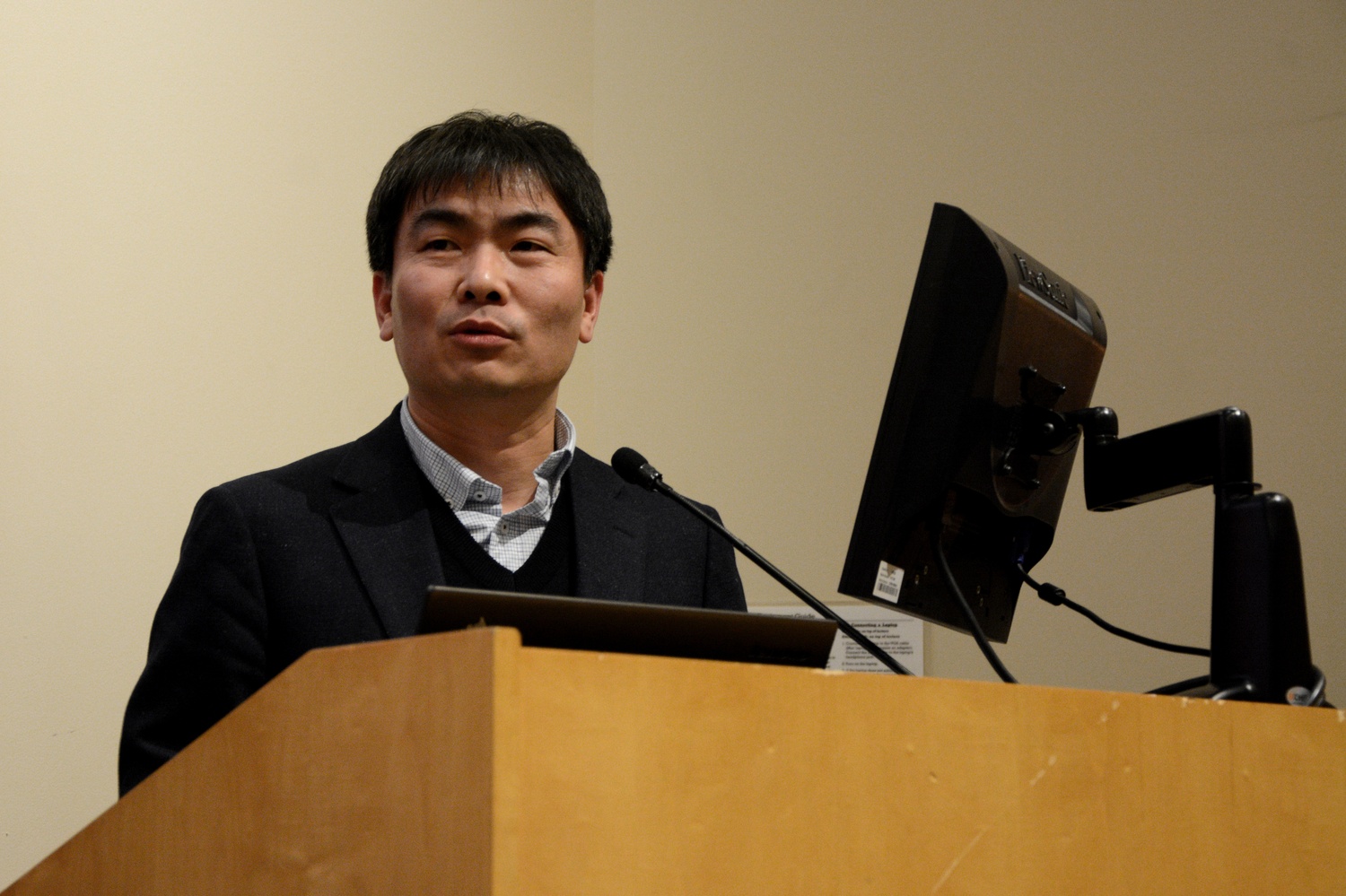
News
Summers Will Not Finish Semester of Teaching as Harvard Investigates Epstein Ties

News
Harvard College Students Report Favoring Divestment from Israel in HUA Survey

News
‘He Should Resign’: Harvard Undergrads Take Hard Line Against Summers Over Epstein Scandal

News
Harvard To Launch New Investigation Into Epstein’s Ties to Summers, Other University Affiliates

News
Harvard Students To Vote on Divestment From Israel in Inaugural HUA Election Survey
North Korean Defectors Recall Living Conditions at Event

Three North Korean student defectors spoke about the economic and intellectual poverty in North Korea, how they managed to escape the country, and the importance of media dissemination for the transformation of North Korean society at an event at the Fong Auditorium on Tuesday.
The event was led by Woorihana, a sister organization of the Seoul-based North Korea Strategy Center that seeks to connect students from the United States with defector students from North Korea. It was co-hosted by Harvard Human Rights in North Korea.
Eunju Kim, who defected from North Korea on two occasions, first in 1999 and then in 2002 recalled how the government exerted complete control over the education system.
“When I was eight years old, I had to watch a public execution; it was part of the public education in North Korea,” Kim said. “We thought it was right because the government was doing this.”
Kim’s father passed away due to starvation during a famine that took place in the 1990s. Kim said she wrote a will when she was 11, expecting to die the same way.
“The day my mom came back home empty-handed [after spending several days searching for food], she said, ‘Let’s die together,’” Kim said.
Gwang Seong Jung, another speaker who defected to South Korea in 2006, noted the extent of government propaganda through media and education. He said he had spent the past five months learning English in the United States.
“In North Korea, they teach you to hate Americans, so we can’t learn English,” Jung said. North Korean students learn Russian instead, he added.
Kim noted that in China, North Korean refugees are considered illegal immigrants and are deported. Those who manage to avoid deportation, according to Kim, often work as exploited workers, and women can be subject to human trafficking.

Se Jun Park, the last of the defectors to speak, was a trained doctor in North Korea before he escaped. He described the poor conditions of healthcare facilities and the lack of adequate equipment and medicine, including bandages and reliable pharmaceuticals.
“Being placed in an environment where I couldn’t save lives, I felt a lot of guilt as a doctor,” Park said.
Park described working during electricity shortages. Doctors often faced power outages while performing surgical procedures.
“I have transitioned from being a doctor...to a North Korea human rights activist who works to fix an ailing society,” Park said.
Park spoke about the work of Woorihana and the impact that bringing external content to North Korea—in the form of smuggled USBs—has had in transforming the society and helping bridge the information gap.
“A movie from the outside will give North Koreans hopes and dreams,” Park said.
Sharon M. Stratton, the US program officer for the North Korea Strategy Center said that Woorihana is doing a speaker tour, starting off at Harvard, that will last a week and a half.
“We are focusing on increasing the awareness and participation from US students on the discussion of North Korean human rights,” said Stratton.
—Staff writer Carolina I. Portela-Blanco can be reached at carolina.portelablanco@thecrimson.com. Follow her on Twitter @cportelablanco.
Want to keep up with breaking news? Subscribe to our email newsletter.
